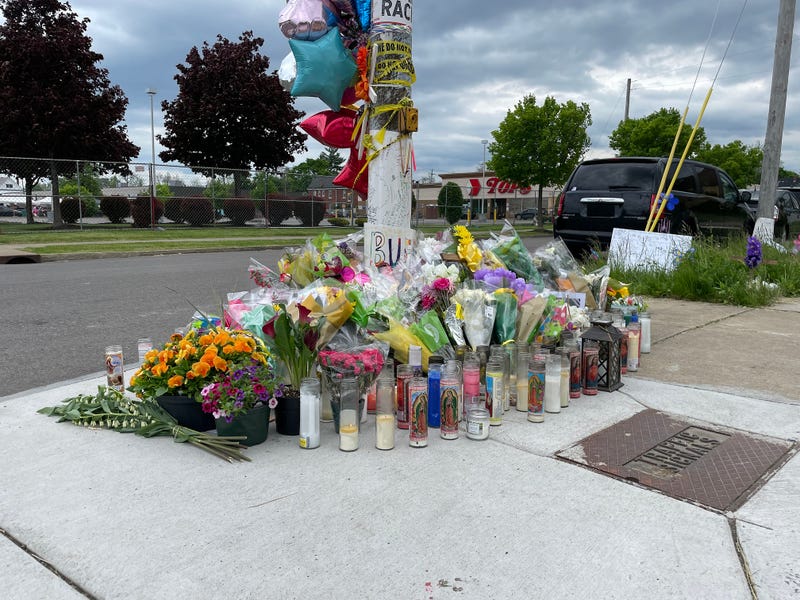
Buffalo, N.Y. (WBEN) - It's been almost one year since the horrific mass shooting at the Tops on Jefferson Avenue, where an 18-year-old gunman shot 10 Black people, injured three others, and terrorized an entire community of people in the City of Buffalo.
Dr. Michael Cummings, Associate Medical Director at ECMC and a professor of psychiatry from University at Buffalo, was in-studio with WBEN's Susan and Brian Wednesday morning talking about mental trauma, and how it takes many forms for all different types of people.
listen to wben now!
"When we're talking about trauma, post traumatic stress disorder, and things like that, there really isn't a timeframe," said the doctor.
"Yes, in some ways, things get better over time for many people, particularly if they kind of work through it and get some support and help from professionals or trusted friends. The heinous thing about PTSD is, you can be triggered by something relatively innocuous years later, like the combat vet who hears a car backfire, things like that. It's a very personalized experience for the people who experienced it at ground zero, but for the community and the nation in general, our responses are really individualized based on that."
For those survivors especially, being reminded of the anniversary of the date and hearing about it on social media can be a retriggering experience for people.
Dr. Michael Cummings further explains how handling traumatic events is very contingent on who you are.
"Trauma, like pain, is very subjective. It also depends on who the person is, what their genetic background is and what their prior history of trauma is.
My primary practices is kids with autism, tiny little traumas [happen] throughout their life. People with autism have a 70% chance of having PTSD. Little [traumas] can add up just as meaningful as the big ones. With the shootings. We've also talk about things like vicarious trauma as well as with COVID being experienced, the first responders, the nurses and EMS being exposed to stuff that's not happening to you but happening to others around you over and over again can lead to PTSD."
Dr. Cummings believes that the City of Buffalo and Western New York is going through what is referred to as collective trauma.
"It's a community based experience when you think about the shooting, the fire, the storm, the Hamlin collapse and and all those things. That is something that community experiences. And if it happens in your community, or to your race or culture, you probably even have a deeper experience of that."
To date, there have been 199 mass shootings. Are these events desensitizing the population?
"We're kind of used to it. But when it came at home, when you first heard the announcement, it really hits home. And this happens to other people, which we still we struggle with, when it's in your own community it becomes very, very real, doesn't it?" said Dr. Cummings.
The doctor provides some helpful and productive ways to cope.
"Talk with trusted people. They don't have to be mental health professionals. They could be people from your church, it could be family members, people who you trust, just talking things out can be helpful.
If you're starting to feel yourself struggle, certainly stay on a schedule, avoid using coping mechanisms, unhealthy alcohol, substance abuse etc. You know, take a break from the media, there's gonna be a lot going on, you can be informed without immersing yourself in it 24/7. But also community, this is one of the important things, helping others and giving back things that is actually really helpful in healing for the individual, which I think a lot of this weekend will entail."
You can hear the full segments with Dr. Michael Cummings in the player below:
